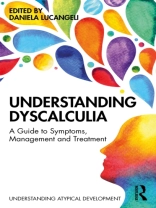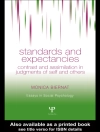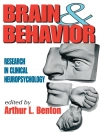This accessible book provides evidence-based guidelines on dyscalculia, offering a thorough explanation of the science behind the disorder. It combines this theoretical framework with practical recommendations, offering interventions for managing the condition at home and school and avoiding potential behavioural consequences.
Written in a straightforward style, this book provides a concise summary of relevant research to empower the reader to take an informed and positive approach to dyscalculia and those who live with it. The internationally based team of contributors examine the different models that explain the construct of dyscalculia, looking at definitions and theories alongside signs, symptoms and diagnosis. Chapters also explore how to communicate diagnosis to peers, possible cultural differences and sensitivities when related to mathematics education and dyscalculia and the importance of maintaining a proactive attitude when working with children with dyscalculia.
Understanding Dyscalculia is essential reading for parents and practitioners in clinical and educational psychology, education professionals and students and researchers of special educational needs, educational psychology and counselling psychology.












